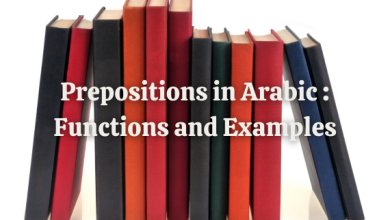In Arabic, the omission of the subject in certain sentences is a common linguistic phenomenon rooted in the language’s structure, grammatical flexibility, and context-driven nature. Here are several key reasons why subjects are often omitted in Arabic sentences:
Pro-drop Language
Arabic is considered a “pro-drop” language, meaning it allows the omission of subject pronouns when they are pragmatically or grammatically inferable. This is due to the rich verb conjugation system in Arabic, where the verb itself often provides enough information about the subject. For instance, the verb form changes with different pronouns, making the subject implicitly clear.
Example:
– أكتب (aktub) means “I write” where the verb form implicitly indicates the first person singular subject “I.”

Contextual Clarity
Arabic relies heavily on context to convey meaning. In spoken and written Arabic, the subject can be omitted if it has been previously mentioned or is easily understood from the context. This is especially common in conversational Arabic, where brevity and fluidity are essential.
Example:
– (When responding to a question about what one is doing) أكتب (aktub) can be understood as “I am writing” without needing to repeat the subject.
Ellipsis for Emphasis and Style
Ellipsis, or the deliberate omission of words, is often used for emphasis and stylistic reasons. By omitting the subject, the speaker or writer can place greater emphasis on the action or the object of the sentence. This is a common feature in Arabic poetry and rhetoric.
Example:
– (In poetry) زرت الأمس (zurtu al-ams) meaning “I visited yesterday,” where the subject “I” is implied and the emphasis is on the act of visiting and the time.

Imperatives and Commands
In imperative sentences, the subject is almost always omitted, as it is assumed to be the second person (you) by default. The verb form itself indicates the command directed at the listener.
Example:
– اكتب! (uktub!) meaning “Write!” where the subject “you” is implicitly understood.
Pronoun Dropping with Known Subjects
When the subject is a pronoun and it is already clear from the conversation who is being referred to, the pronoun can be dropped. This is particularly common in longer narratives or dialogues where the subject remains the same over multiple sentences.
Example:
هو يدرس في الجامعة. يقرأ الكتب كل يوم. (Huwa yadrus fi al-jami’a. Yaqra’ al-kutub kulla yawm.) meaning “He studies at the university. He reads books every day.” The pronoun “He” is dropped in the second sentence because it is clear from the context.
The subject is omitted in the second Arabic sentence because it is understood from the context.
Conclusion
Arabic speakers often omit the subject in sentences due to the language’s pro-drop nature, contextual dependence, stylistic choices, and specific requirements of sentence types like imperatives.
Understanding these nuances helps in grasping the fluid and context-rich structure of Arabic, making it both a challenging and beautiful language to master.




